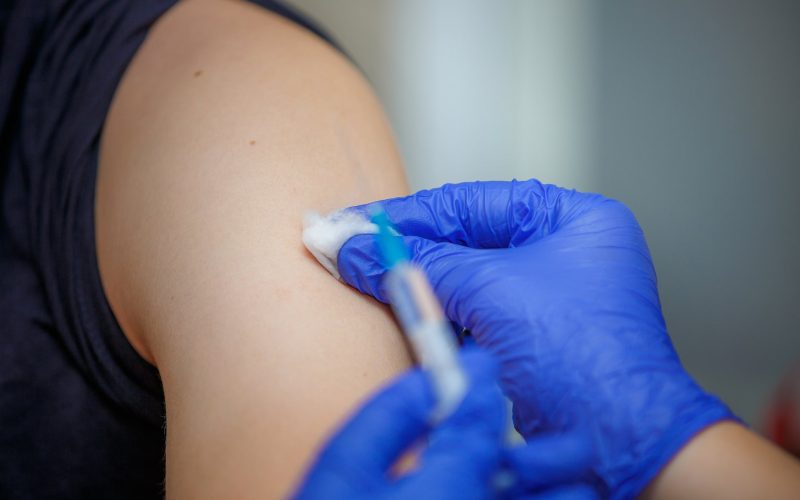In the BRACE study, the possible benefits of the BCG vaccine to protect healthcare professionals against COVID-19 are determined. With the first follow-up visits taking place, the progress of the trial, which started in the spring of 2020, is well on track.
The BRACE study aims to determine if the BCG vaccine (a vaccine indicated for the prevention of tuberculosis) reduces the incidence and severity of COVID-19 disease. This large-scale study started in Australia in the spring of 2020 and was initiated by the Murdoch Children’s Research Institute (MCRI). COMBACTE CLIN-Net was approached by MCRI to select sites for the European leg of the study. Currently, 11 hospitals in the Netherlands and Spain are participating in the phase III, multicenter, randomized controlled study.
The European leg of the study, in which 822 healthcare employees are participating, is coordinated by the UMC Utrecht (the Netherlands) and the Virgen Macarena University Hospital in Seville (Spain). The enrolment of health care professionals in the Netherlands started on 4 August 2020 and closed on 29 October 2020. A total of 594 participants were included at 6 hospitals. In Spain the enrolment started on 15 October 2020 and ended on February 9th of this year. The study progress is on track with the first 6-month follow-up visits being conducted in the Netherlands and 3–month follow up visits being conducted in Spain. The follow up phase of the trial will continue until February 2022.
The BCG vaccine was originally developed to protect against tuberculosis (TB), so it does not target the coronavirus directly. In addition to protecting against TB, the vaccine also seems to generate a (temporarily) boost of the immune system. This boost may offer additional protection against COVID-19, which will hopefully reduce the number of people affected by the virus and also help to ease the infection. Although nowadays only certain risk groups in the Netherlands receive the BCG vaccine, it is administered annually to more than 130 million baby’s worldwide.
The rationale of BRACE study is that the BCG vaccine may also provide early protection against COVID-19. This will be of particular benefit for healthcare workers for whom contraction of the disease would have a large impact, resulting in increased absence from work. Globally, around 10,000 health care workers participate in the study. Participants are randomized to receive the BCG vaccine or placebo. After 12 months a follow-up will be done to identify suspected COVID-19 infections. COVID-19 related symptoms are self-reported via a smartphone application and 3-monthly surveys. Blood samples are collected prior to randomization and at 3, 6, 9 months and 12 months to determine COVID-19 exposure. The BRACE study is supported with a AUD 10M (€ 7M) grant from the Bill & Melinda Gates Foundation.
